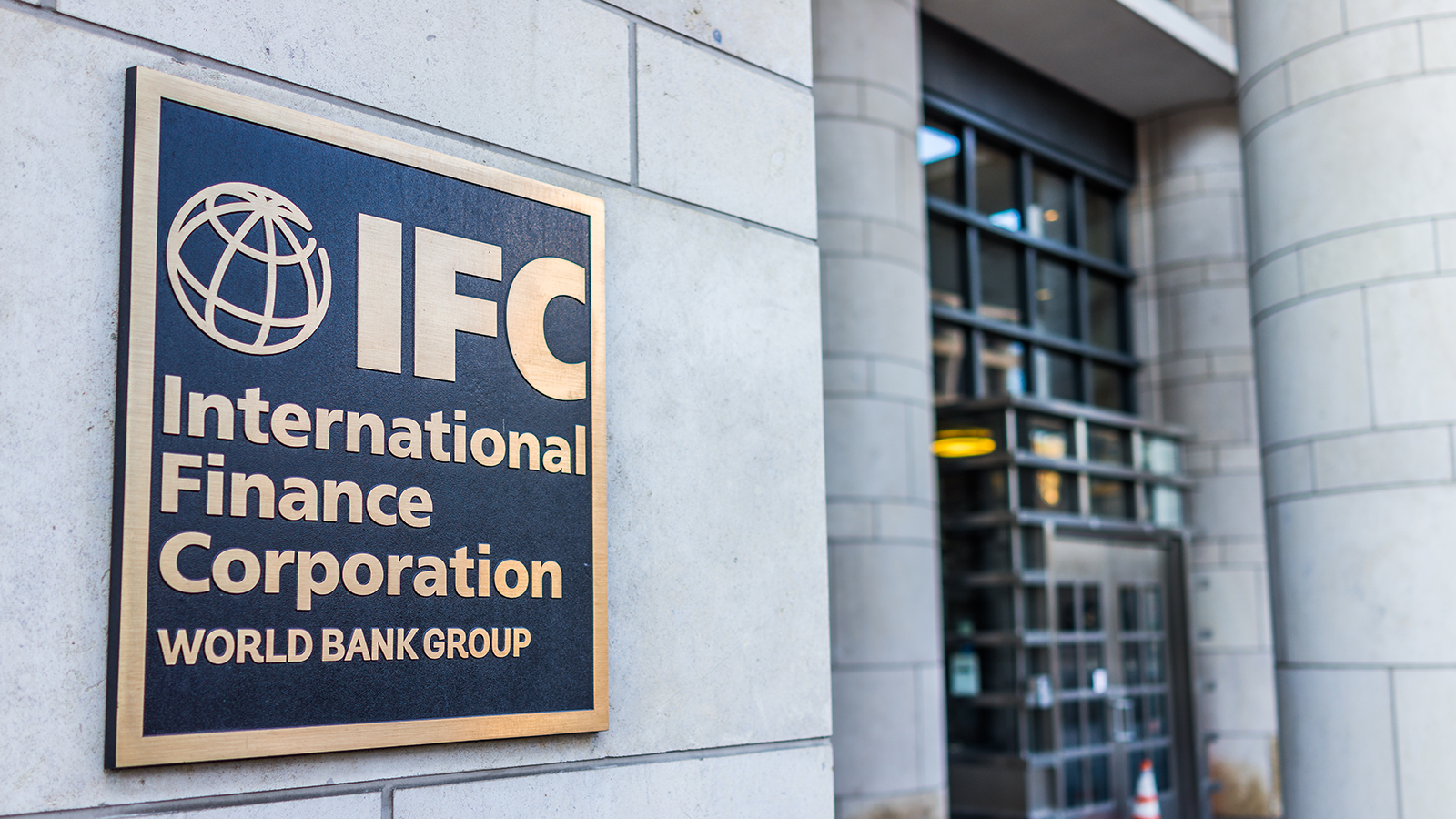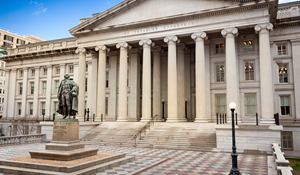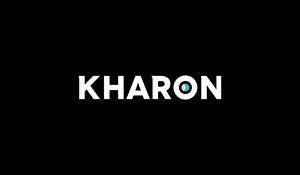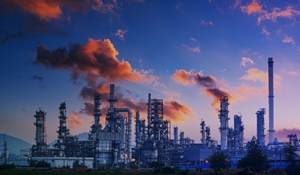By Morgan Brown, Edmund Xu and Samuel Rubenfeld
November 4, 2021
Chinese companies with operations in Xinjiang and ties to a sanctioned paramilitary group accused of benefiting from forced labor have received subsidies in recent years from international development banks, in part to expand their operations in the region, records show.
In March, the International Finance Corporation (IFC), the private sector arm of the World Bank Group, approved a USD 150 million loan to Blue Sail Medical Co., Ltd. to help expand its medical glove production capacity.
The company, which claims on its website to be the world's largest manufacturer of health protective gloves, saw a rise in overseas orders amid a pandemic-related suspension of production by Malaysian firms, Chinese state media reported this summer.
Blue Sail’s operations and supply chain “are not linked to Xinjiang in any way,” IFC documents say. But securities disclosures in China seen by Kharon show that Blue Sail purchases raw materials used to manufacture its gloves from a subsidiary of the Xinjiang Production and Construction Corps (XPCC), a group sanctioned by the U.S. for its alleged ties to human rights abuses in the region.
The U.S. has used a variety of measures, including sanctions, import bans and export restrictions, to address the situation in Xinjiang, a region in China where the government is accused of engaging in human rights abuses against Uyghurs and other ethnic minorities. The U.S. has declared it a genocide. China has dismissed the accusations and is targeting the families of Uyghurs living overseas who speak out against Beijing, according to media reports. Overt repression in Xinjiang has been curtailed by the Chinese government, but “evidence of the terror of the last four years is everywhere,” the Associated Press recently reported.
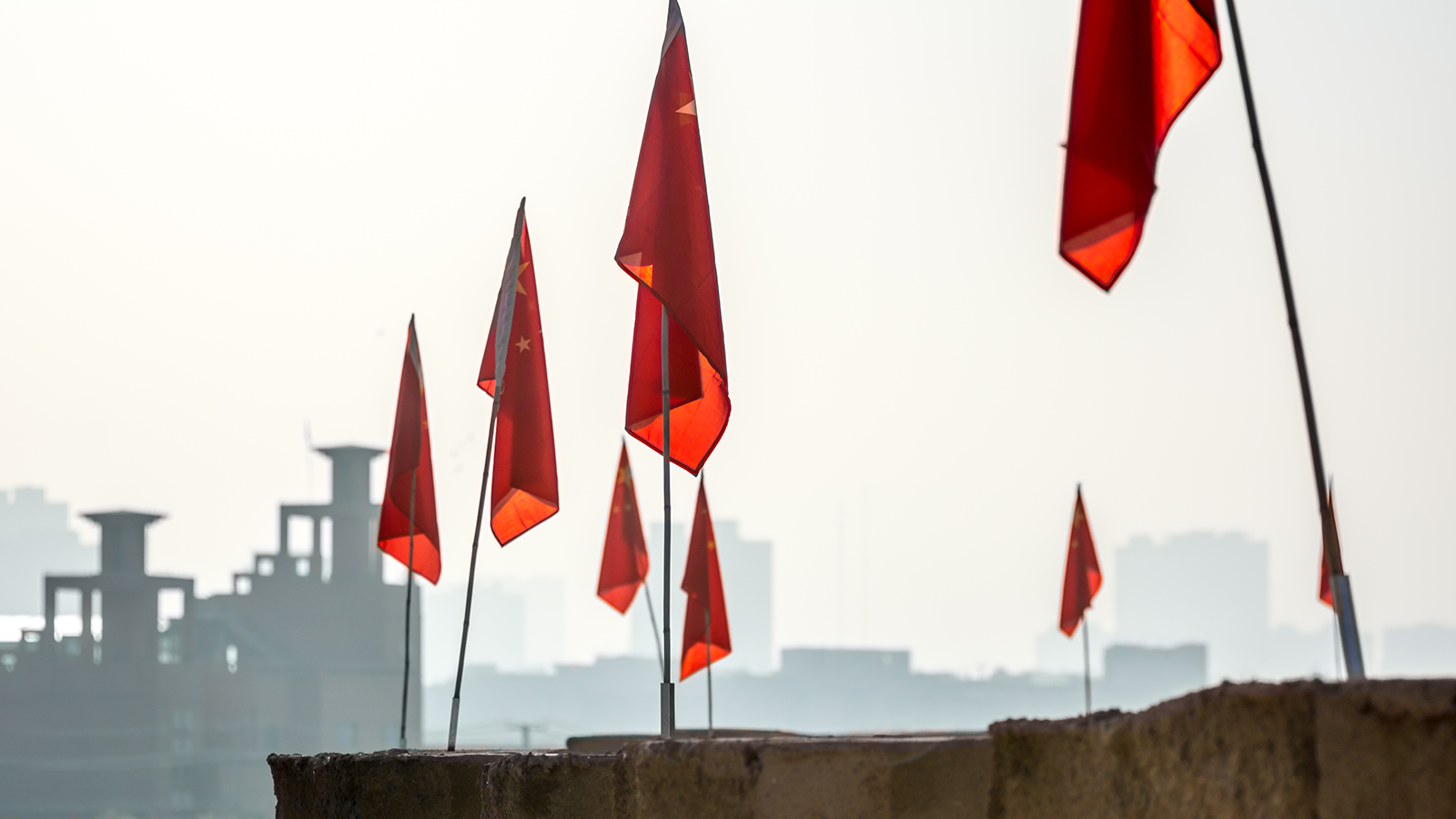
In recent years, IFC has provided hundreds of millions of dollars of loans to several companies in China with connections to Xinjiang, according to a review by Kharon. The IFC, which helps countries develop their private sectors by investing in companies through loans, equity and debt securities, coordinates its activity with other institutions of the World Bank Group, but legally it is financially independent. The U.S. is the IFC’s largest shareholder; it is also the only country with veto power over its most important voting decisions, according to the Center for Global Development.
Jointown Pharmaceutical Group Co. Ltd., a Wuhan, China-based pharmaceutical company with operations in Xinjiang, received loans from the IFC totalling nearly USD 200 million in 2019 and 2020, including almost USD 50 million in October 2020 for working capital needs, according to IFC disclosures.
Jointown Pharmaceutical is the largest non-state owned pharmaceutical distributor in China, according to its LinkedIn profile. It has nearly 400,000 business-to-business clients, including hospitals, pharmacies and medical institutions, according to its website. The company, which is publicly traded on the Shanghai Stock Exchange, reported CNY 110.9 billion (about USD 17 billion) in operating income in 2020.
The IFC loans to Jointown Pharmaceutical included USD 148.5 million that was aimed at supporting expansion in rural and frontier areas of middle and western China, including its locations in Xinjiang, records show.
Though the IFC disclosures do not specify which Xinjiang expansions they helped fund, Jointown Pharmaceutical has opened at least three Xinjiang-based subsidiaries with ties to XPCC in the past three years, Kharon found. Its relationship with XPCC has been long established: Jointown Pharmaceutical invested in a joint venture with a unit of XPCC more than a decade ago related to the distribution of Chinese medicine, according to corporate records.
The U.S. recently imposed restrictions on exports to XPCC, and it has banned certain XPCC products from entering the country. Nevertheless, XPCC, a massive, sprawling entity, has kept its supply chain flowing, Kharon reported late last year.
Two of the Jointown Pharmaceutical’s newly established subsidiaries are located in the XPCC-run cities of Shihezi and Aral and share addresses with majority-owned XPCC subsidiaries, corporate records show, which may indicate operational ties between the companies. In particular, the Shihezi subsidiary, which opened in late 2019, is co-located with an XPCC-owned pharmaceutical company in an industrial park operated by XPCC.
A third Jointown Pharmaceutical subsidiary in Xinjiang, also opened in late 2019, is located inside the Beijing Hotan Industrial Zone in Hotan, Xinjiang. Other companies that list addresses in the industrial zone include at least two XPCC subsidiaries, as well as a garment factory sanctioned by the U.S. for using forced labor, records show. A “vocational training center” located in the zone trains its students on anti-terrorism and anti-extremism laws in addition to operating garment workshops, according to an October 2018 Chinese state-media broadcast.
Additionally, Xinjiang Jointown Pharmaceutical built a new facility in Urumqi in 2016 near a detention center, and its location in Kashgar is adjacent to a military base, according to a report released in March by NomoGaia, a human rights group.
Companies operating in Xinjiang near, or within the confines of, internment camps or prisons are at increased risk of forced labor, according to a U.S. government advisory issued in July. Businesses or individuals engaging in activities that involve Xinjiang face reputational risk and potential U.S. civil, criminal or administrative enforcement, the U.S. advisory warned.
In addition to the IFC loans, Jointown also received a CNY 130 million (USD 18.6 million) loan in March 2020 from the Asian Development Bank (ADB) to support continued supply of personal protective equipment (PPE) and medicines, the bank said. The company secured another EUR 60 million (USD 74 million) this year to expand its pharmaceutical distribution network in China in a loan from the ADB co-financed with a German development bank, the ADB said in January.
The IFC also issued loans to companies in China with Xinjiang ties before the human rights situation in the region became widely known. Those companies, however, have engaged in high-risk activities that may indicate forced labor within their supply chains. Although approved years ago, the IFC loans are still active, records show.
In January 2019, IFC approved a USD 40 million loan to Chenguang Biotech Group Co., Ltd., which sources its raw materials from Xinjiang, to expand the company’s production capacity, IFC records show. Chenguang Biotech, which is listed in Shenzhen, is a global supplier of natural plant extracts, according to the company’s website.
Its Xinjiang subsidiary, Chenguang Biotechnology Group Shache Co., Ltd., employs laborers from relocated households to plant marigold flowers as a part of “poverty alleviation” efforts, according to a Xinjiang local government publication. Government mentions of poverty alleviation efforts are a warning sign of forced labor in Xinjiang operations, according to the recent U.S. government advisory.
And Hong Kong-listed Century Sunshine Group Holdings Limited received a USD 125 million IFC loan in 2015 to support the company’s plans for improving the energy efficiency of its fertilizer production process, records show. IFC owns or controls more than 17 percent of Century Sunshine’s shares, according to the company’s most recent annual report.
Century Sunshine is the majority indirect owner of Xinjiang-based Tengxiang Magnesium Products Co., Ltd., which received transfers of impoverished laborers to “transform farmers into industrial workers,” according to a 2018 local media report. The transfer of rural laborers along with mentions of reskilling are additional indicators of forced labor or labor abuse, according to the U.S government.
REMT Group, the Hong Kong-listed Century Sunshine subsidiary that owns Tengxiang Magnesium Products, produces rare earth magnesium alloys, some of which have been applied to aerospace vehicles, according to a 2019 report by the South China Morning Post. It has production facilities in Xinjiang and in Jilin province in the northeast, the SCMP report said.
